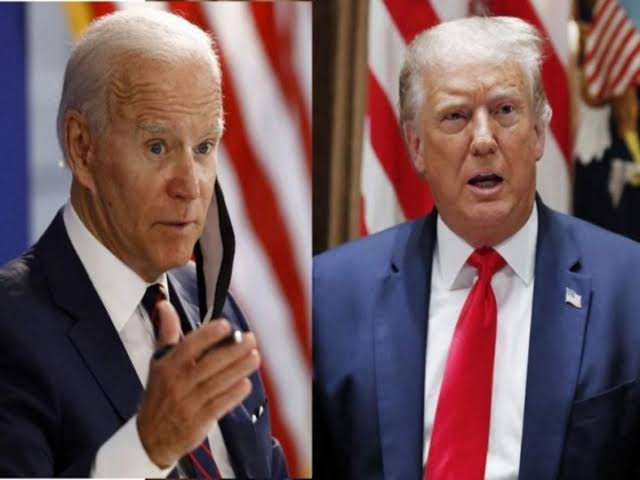Joe Biden, Donald Trump trade blame amid American ignominy.....
Joe Biden, Donald Trump trade blame amid American ignominy..
WASHINGTON: American leaders and strategists raged against each other in a bitter blame game over the weekend as US global reputation geo-political equities went up in flames following the fall of Kabul to the Taliban.
In scenes evocative of the ignominious US exit from Saigon in 1975, American officials shredded and burned classified documents at the US Embassy in Kabul before they were bundled onto Chinook military helicopters for evacuation, even as Taliban fighters moved into the Afghan capital and the country's President Ashraf Ghani fled after the Biden administration pulled the plug on his fragile government.
Recrimination, anger, and shame coursed through the US political discourse as President Joe Biden blamed his predecessor Donald Trump for the fiasco, and Trump, in turn, berated Biden and Democrats for what experts said was one of the greatest US intelligence failures ever.
American military planners had conjectured that Kabul would fall within months, if not weeks. But as it turned out it took just days and hours for the Afghan capital to fall before the Taliban's lightning advance as they converged on Kabul from all across the country.
Biden himself had said on July 8 that there’s going to be "no circumstance where you see people being lifted off the roof of an embassy of the United States from Afghanistan...The Taliban overrunning everything and owning the whole country is highly unlikely." Yet, that is precisely what is happening just 24 hours after US intelligence officials suggested Kabul would be able to withstand Taliban advance for 30 to 90 days.
Afghan President Ashraf Ghani's gig was up the moment Biden said on Saturday that the onus was on the Afghan government and its military to stem the Taliban advance and US officials indicated the President ordering some 5000 US troops back into Kabul was to help evacuate US government personnel, citizens, and US allies, not to help Afghan forces fight the advancing Taliban.
"When I came to office, I inherited a deal cut by my predecessor—which he invited the Taliban to discuss at Camp David on the eve of 9/11 of 2019—that left the Taliban in the strongest position militarily since 2001 and imposed a May 1, 2021 deadline on U.S. Forces. Shortly before he left office, he also drew U.S. Forces down to a bare minimum of 2,500. Therefore, when I became President, I faced a choice—follow through on the deal, with a brief extension to get our Forces and our allies’ Forces out safely, or ramp up our presence and send more American troops to fight once again in another country’s civil conflict," Biden said in a statement on Saturday, implicitly blaming Trump for the debacle, while explaining that "One more year, or five more years, of U.S. military presence, would not have made a difference if the Afghan military cannot or will not hold its own country."
"I was the fourth President to preside over an American troop presence in Afghanistan—two Republicans, two Democrats. I would not, and will not, pass this war onto a fifth," he added.
Trump and his allies pounced on the fiasco to denounce Biden as weak and vacillating, particularly after the US President ordered American troops back into Kabul after withdrawing them days earlier even before US officials and citizens had been fully evacuated.
Discerning analysts saw both Democratic and Republican administrations responsible for the American ignominy. "President Biden bears responsibility for making this decision, but there's no question President Trump, his administration, Secretary Pompeo, they also bear very significant responsibility for this. They walked down this path of legitimizing the Taliban," said Liz Cheney, a Republican lawmaker, and daughter of former vice-president Dick Cheney.
Some commentators apportioned the blame also to Presidents Obama and Bush, lamenting that the US should have exited Afghanistan soon after it killed Osama bin Laden and should have never gotten into the business of nation-building.

